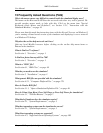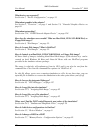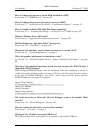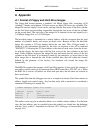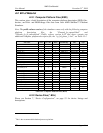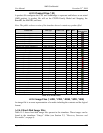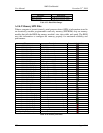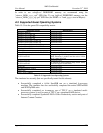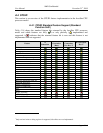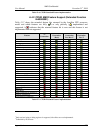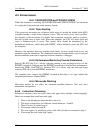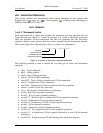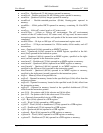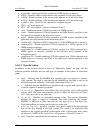
AMD Confidential
User Manual November 21
st
, 2008
Appendix A 181
In order to use unbuffered DDR/DDR2 memory we recommend using the
“simnow_DDRx_yyyy_.spd” SPD files. To use buffered DDR/DDR2 memory use the
“simnow_DDRx_yyyy_reg.spd” SPD files (for DDR2 x = 2 and yyyy = size in Mbytes).
A.3 Supported Guest Operating Systems
Table 15-5 lists the guest OS compatibility matrix.
Operating System
Known Issues
Windows 2000 UP
No known issues.
Windows XP (32-Bit) UP
No known issues.
Windows XP (32 Bit) MP
No known issues.
Windows XP (64-Bit) UP
No known issues.
Windows Server 2003 (32-Bit) UP
No known issues.
Windows Server 2003 (64-Bit) UP
No known issues.
Windows Server 2003 (64-Bit) MP
No known issues.
Windows Vista (32-Bit/64-Bit) UP/MP
No known issues.
Windows Server 2008
No known issues.
MS-DOS
No known issues.
Linux (32-bit/64-bit), RedHat/SuSE, UP/MP
Kernel versions 2.4 and 2.6 are all known to work.
SUSE LiveCD 9.1
Hangs during PCMCIA probe when the VESA
BIOS Extension is enabled and the active VESA
Mode is not 1024x768.
SUSE LiveCD 9.2
No known issues.
SUSE LiveCD 9.3
No support for initial graphical setup screen. Setup
screen will appear in text mode.
SUSE 10.1
No known issues.
Red Hat Enterprise Linux 4
No known issues.
Solaris x86
No known issues.
Solaris 10 for AMD64
No known issues.
Table 15-5: Supported Guest Operating Systems
The simulator has recently (but not specifically tested for this release):
Successfully completed a 64-bit SpecJBB run on a simulated 4-processor
machine. The simulator has also successfully completed the entire SPECint2000
and SPECfp2000 suite.
Successfully completed an in-memory run of TPC-C on a simulated multi-
processor system, as well as parts of TPC-C on a simulated RAID device.
Successfully completed Sysmark® 2004's Office Productivity section and parts of
Internet Content Creation.



